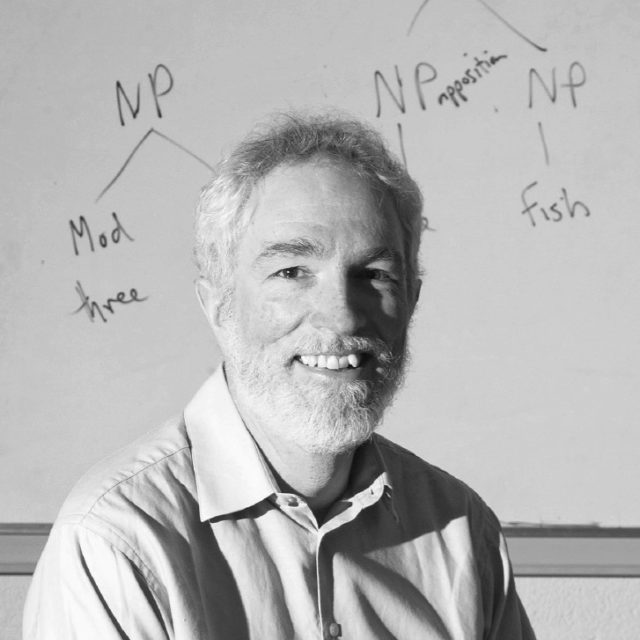William Croft
What's Typology Got to Do With Analyzing Your Language?
Conferencista
-
William Croft

William Croft
William Croft received his PhD at Stanford University under Joseph Greenberg. He has taught at the Universities of Michigan, Manchester and New Mexico, visited the Max Planck Institutes of Psycholinguistics in Nijmegen and Evolutionary Anthropology at Leipzig, and the Center for Advanced Study in the Behavioral Sciences at Stanford, and given lectures throughout the world. He is the author of dozens of articles and nine books, including Typology and Universals, Radical Construction Grammar: Syntactic Theory in Typological Perspective, Explaining Language Change: An Evolutionary Approach, Cognitive Linguistics (with Alan Cruse), Verbs: Aspect and Causal Structure and Ten Lectures on Construction Grammar and Typology. Croft is Professor Emeritus at the University of New Mexico, Albuquerque.
Resumo →
William Croft
What's Typology Got to Do With Analyzing Your Language?
Typology uncovers universals of language through cross-linguistic comparison; many such universals have been found since Greenberg’s word order universals. But what do typological universals have to do with analyzing a single language, such as your native language, or a language you are doing fieldwork on? After all, analyzing the syntactic structure of a single language is based on distributional analysis, the crisscrossing patterns of occurrence of words in constructions (and of smaller constructions in larger constructions). Typology has to compare languages in other ways, through meaning and through cross-linguistically valid formal properties of syntactic structure. In this talk, I will show how the analysis of the syntax of a single language and the study of typological universals are part and parcel of the same theoretical enterprise.
Language-specific analysis and cross-linguistic analysis share an essential part: the function (semantics and information packaging) of syntactic constructions. Distributional variation within a single language is continuous with cross-linguistic distributional variation, brought together by their grounding in function. In addition, starting with function allows one to recast the form-function relation in terms of the verbalization of experience. The verbalization perspective reveals that variation in the encoding of meaning by form is pervasive. This variation is sensitive to fine-grained differences in function that corresponds to typological variation. The cross-linguistic universals we observe are simply a large-scale manifestation of variation in verbalization. Patterns of variation in verbalization are available to speakers of a single language. The functional dimensions of conceptual space underlying these patterns of variation are also part of a speaker’s knowledge. Typology is perhaps the easiest way to discover those patterns of variation and their explanation, which are central to understanding why language is the way it is.
